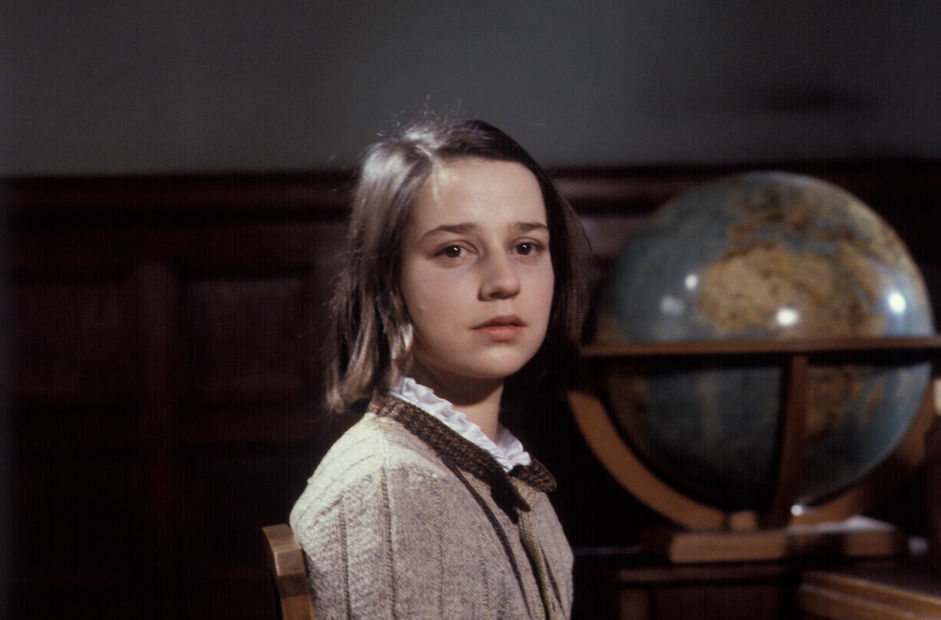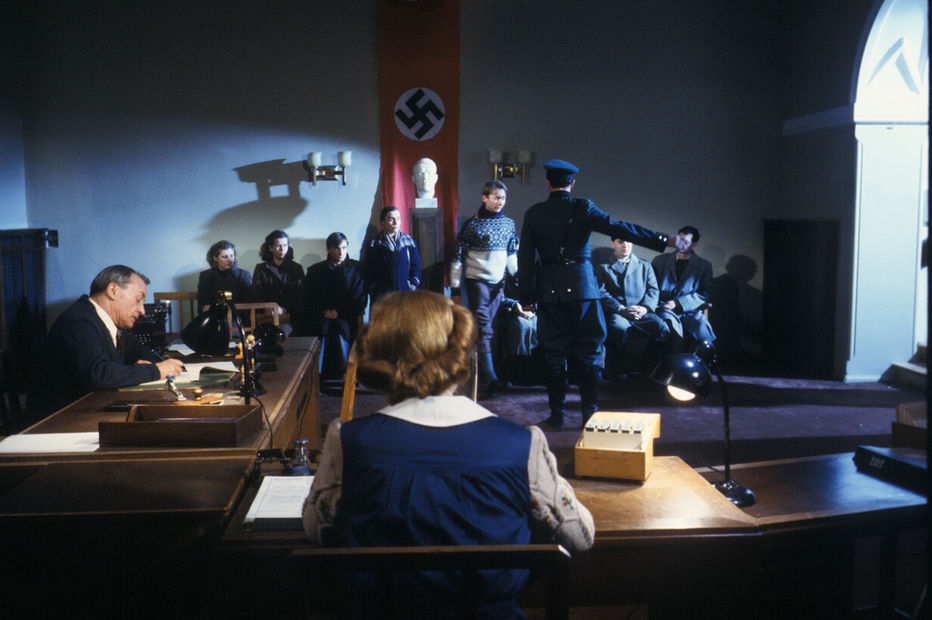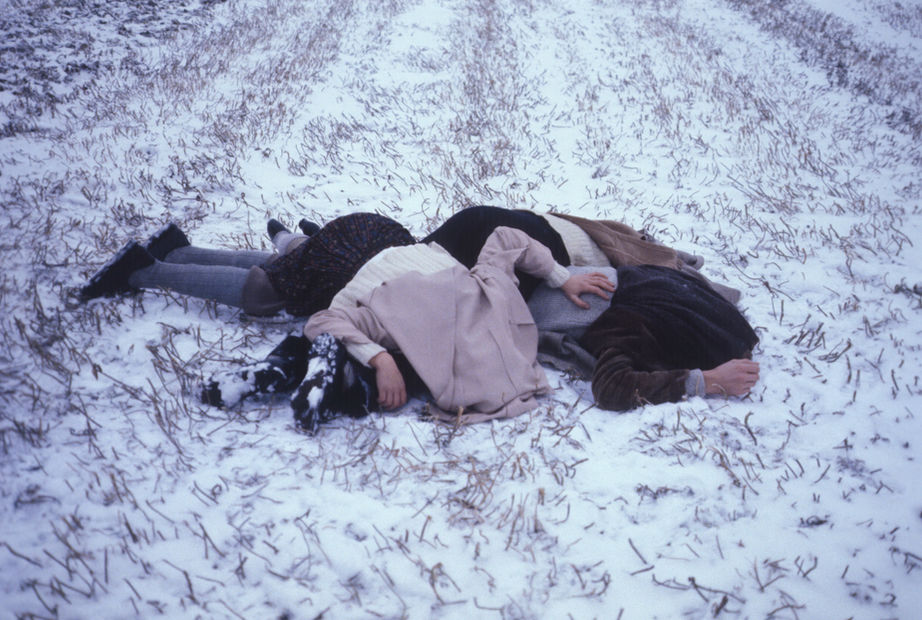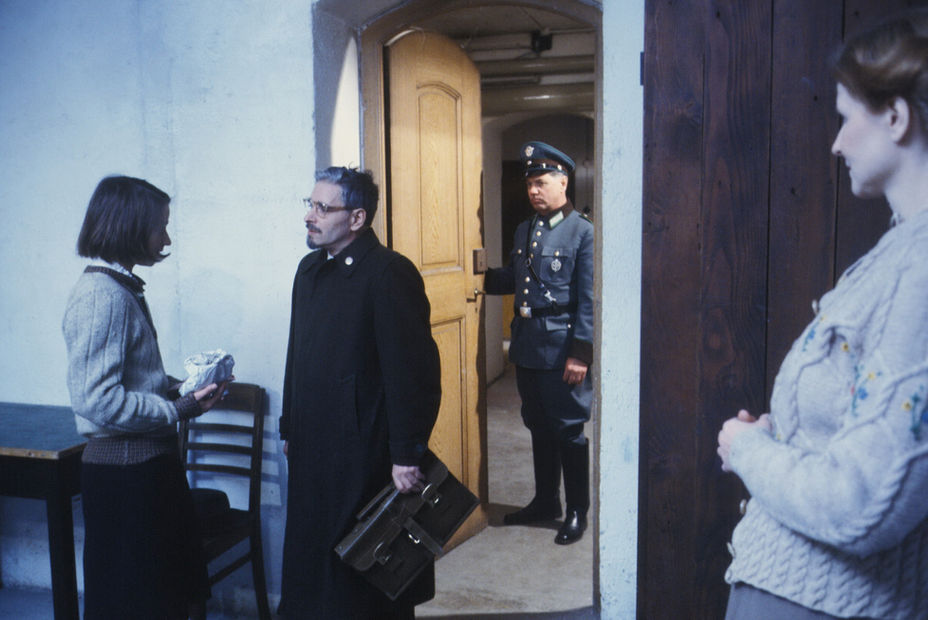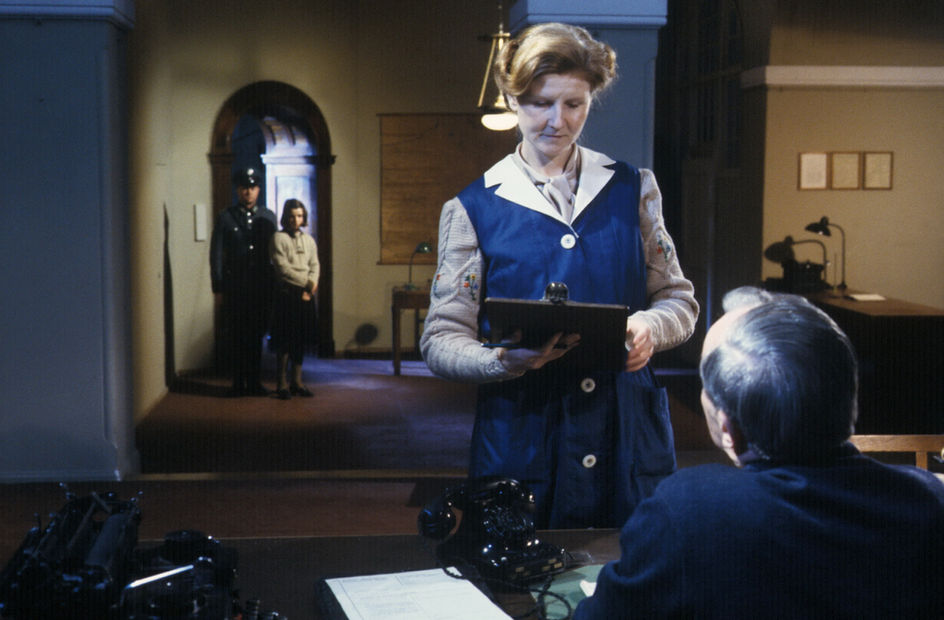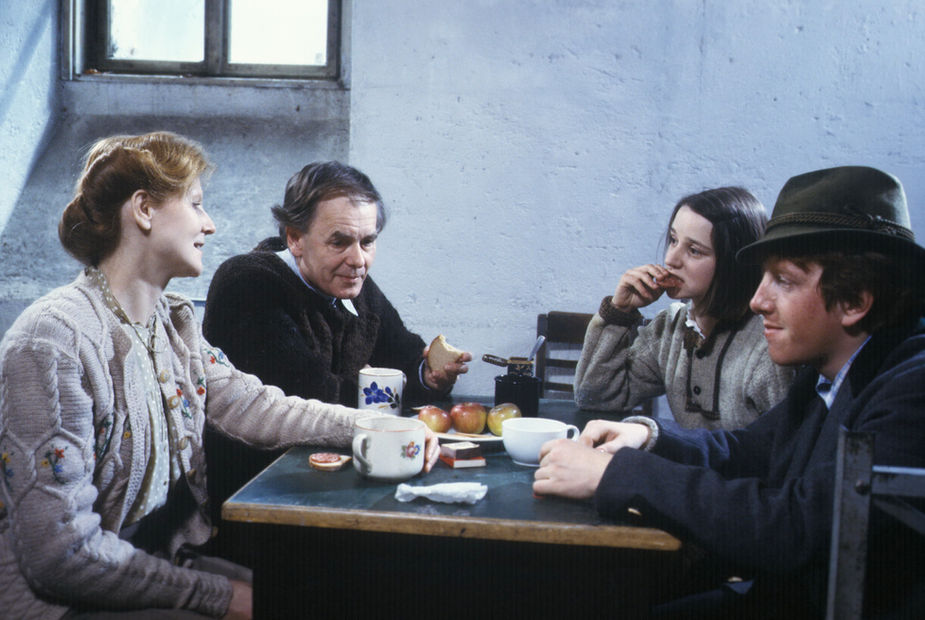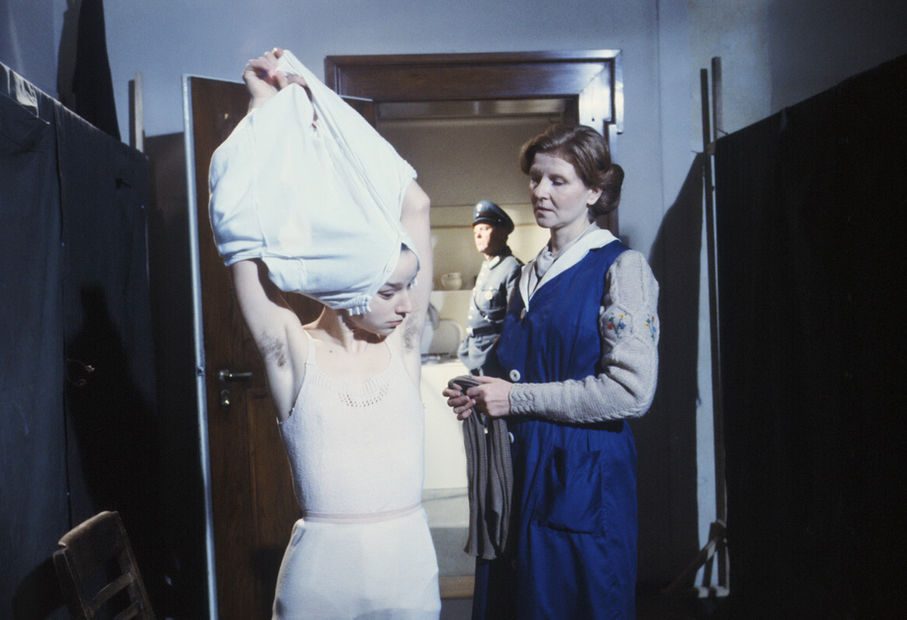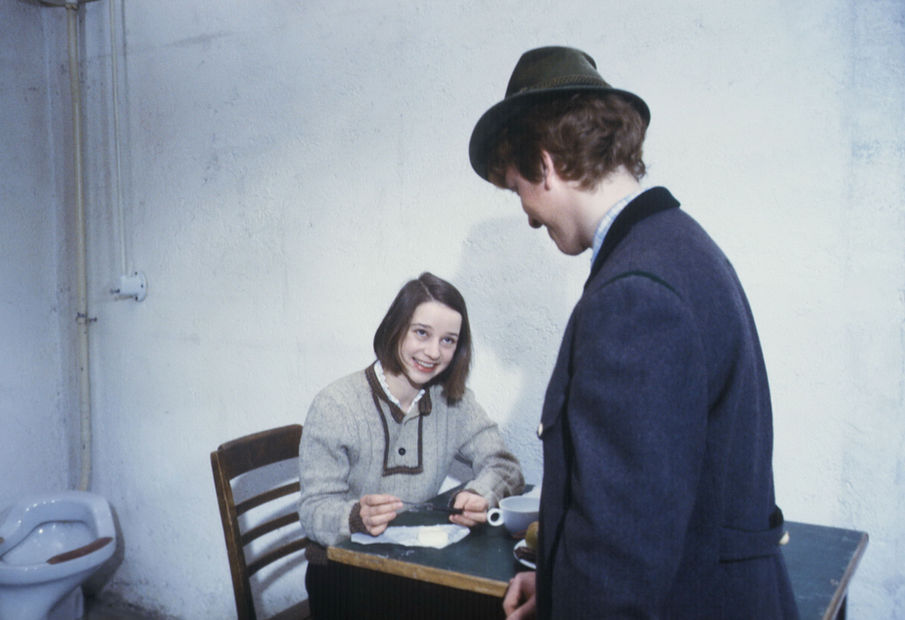
GALLERY
FUNF LETZTE TAGE
(Five Last Days), 1982
"I will never be able to think of these events without being horrified."
- Percy Adlon
A film by Percy Adlon
Irm Herrmann • Lena Stolze • Joachim Bernhard
Ossi Eckmuller, Hans Stadlbauer, Gert Burkard, Michael Cornelius, Philip Arp, Hans Hirschmueller, Will Spindler
Death and the Maiden by Franz Schubert,
performed by the Bartholdy-Quartett
Screenplay by Percy Adlon
Produced by Eleonore Adlon
Produced for television by Heinz Bühmler
Director of Photography – Horst Lermer
Production Design – Heidi Luedi
Editor – Clara Fabry
A pelemele Film production with BR
On February 22, 1943, 21-year-old student Sophie Scholl was executed by guillotine for her involvement in the anti-Nazi resistance movement. The last five days of her life are seen here from the perspective of her cellmate, Else Gebel, whose relatives Percy Adlon contacted for help piecing together his witness: a complex, indomitable woman 20 years Sophie’s senior. Through Gebel's articulate, even literary, recollections, the film exposes a picture of 1943 Germany only rarely considered. Here, the Gestapo are no personification of Evil–they are simply minor Bavarian civil servants doing their day-to-day administrative duties. Far from excusing them, Adlon highlights the horror of the Nazi regime by revealing how evil quickly becomes banal, so that “upright, middle-class virtues” can be used to justify the execution of a young girl, whose only crime was her desire for an end to war. Although necessarily somber, the film's tone ultimately allows for notes of triumph: Scholl has the strength to remain true to her commitment in the face of death, and Gebel rises above the deadening mediocrity of the prison officialdom, to give voice to higher ideals.
Premiered at the Venice International Film Festival, September 1982
Silver German Film Award for the producers
Gold German Film Awards for Lena Stolze and Irm Herrmann
Bavarian Film Award for director Percy Adlon, 1983
OCIC Prize, Venice, 1982
Shot on 16mm Agfa in Munich (Bühler-Palais, Briennerstrasse), February-March, 1982
German, 112 min
Subtitle options: English, French, Italian, Portuguese, Spanish
LEONHARD FRANK: Fluchtwege eines Friedliebenden Mannes
(Leonhard Frank: Escape of a Peace-Loving Man), 1982
A film by Percy Adlon
Screenplay by Percy Adlon
Produced by Eleonore Adlon
Produced for television by Benigna von Keyserlingk
Director of Photography – Jürgen Martin
Editor – Clara Fabry
Music by Wilfried Hiller
A production of pelemele FILM GmbH
Commissioned by Bayerischer Rundfunk
June, 1940.
We never see the 57-year-old man as he escapes from a concentration camp in Northern Bretagne and flees, 18 days on foot and another 10 days by bicycle, 1,700 km through Nazi-occupied France. Instead, we look out through his eyes, breathe with him, fear with him, feel the racing of his heart. Leonhard Frank's novels, his world famous play “Karl and Anna,” were among the books burned in Nazi bonfires for being "degenerate". Now, he is on the run from the fanatics of an extremist ideology, and the destruction of everything he believes in.
Appalled by the plight of his many Jewish friends, Frank left Germany, but was caught in France. Now, without a visa or passport, the only goal is to catch a ship from Lisbon, to the United States. The only property he still owns are the hundred pages of a new manuscript sewn in his short raincoat, titled “Links wo das Herz ist”, Left Where The Heart Is, on which this docudrama of his escape is based.

